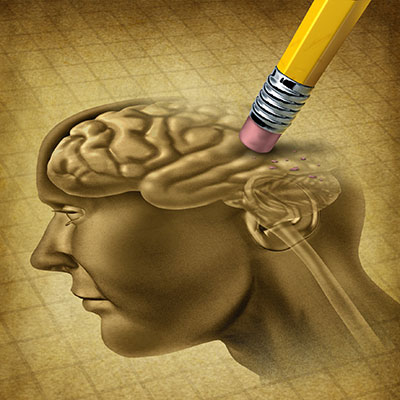As Alzheimer organizations around the world focus on raising awareness about Alzheimer’s and dementia, find out how a little help, lots of support and unconditional love can help the patient find the right balance to mitigate everyday problems associated with the disease.
The early phase
Alzheimer’s disease is the most common form of dementia; it is a group of disorders that impairs mental functioning. Often, the disease progresses, rather unfolds in stages; however, the symptoms may vary.

In the early stage, the patient will display normal outward behaviour and may not have any symptoms, unless an imaging test is done to reveal whether he/she has got Alzheimer’s.
This is followed by very mild changes where you will not outwardly notice anything amiss but there may be small changes or differences in behaviour. For example, forgetting a word or misplacing something – this, of course, might also be dismissed as a mere sign of ageing.
The third stage is where mild decline happens, when you will see changes in the way he/she is thinking or reasoning. It could be something as obvious as forgetting something that he/she just read or common trouble in recalling names.
Dementia and decline
This is the stage when the little signs you noticed earlier become more obvious. The patient forgets even details about him/herself and about important things. He/she even has trouble doing everyday chores.
Soon, they will lose track of time and place and have trouble remembering even residential address, telephone number, etc. This stage is pronounced with very noticeable changes. And as the disease progresses, he/she will have problems recognising faces and names and mistake people’s identities. He/s she might become delusional and need help in managing simple everyday tasks.
The last stage is when severe decline occurs and the patient’s basic abilities such as eating, walking and sitting are affected. Many might not even be able to tell when they are thirsty.


Tips for Caregivers
- As a caregiver, the onus is on you to ensure that the surroundings and situations are injury-free.
- Identify the stressors that could cause frustration for the patient and find ways to overcome it.
- While safety requires you to create a plan of action, that doesn’t mean undermining his/her ability to do a task. Help only if the patient demonstrates inability to do something. Also, ensure that the help you are rendering is in the right direction.
- Make a checklist of activities to help him/her with daily care, including grooming, bathing, dressing up, eating and physical activities.
Activities to consider:
Music
Music has healing powers, and for patients with Alzheimer’s it could play a role in help recall memories. Music could take them back to the memorable times in the past. The music you choose could also help calm the patient and create a more conducive environment.
Technology
While assistive technology has proven to be effective in promoting independence and managing potential safety risks around the house, Alzheimer’s patients can also benefit from electronic tablets to stay calm and reduce stress. Encourage the patient to carry one along to increase their interaction and communication with relatives.
The outdoors
Like for most physical and mental problems, the outdoors has therapeutic value even for dementia patients. Mild exercise and fresh air can help relieve tension and anxiety, while providing personal space for reflection. Even sitting in the garden or the backyard can have a positive effect on the patient’s sense of well being. However, it is important to ensure that the outdoor is accessible and the walking path is circular, so as to take away the confusion and ensure that the patient returns to the same spot.
Memory box


Create a memory box with personal items of significance that can be linked to people and events in the past, like a favourite holiday destination, old office, a family event, newspaper clippings or even jewellery and clothing. This will help the patient recall those memories and start conversations and boost happy emotions.
Travel
Make travel time simpler and enjoyable by planning the route and creating a relaxing travel option, as the chances of anxiety attacks are higher in patients with dementia.
